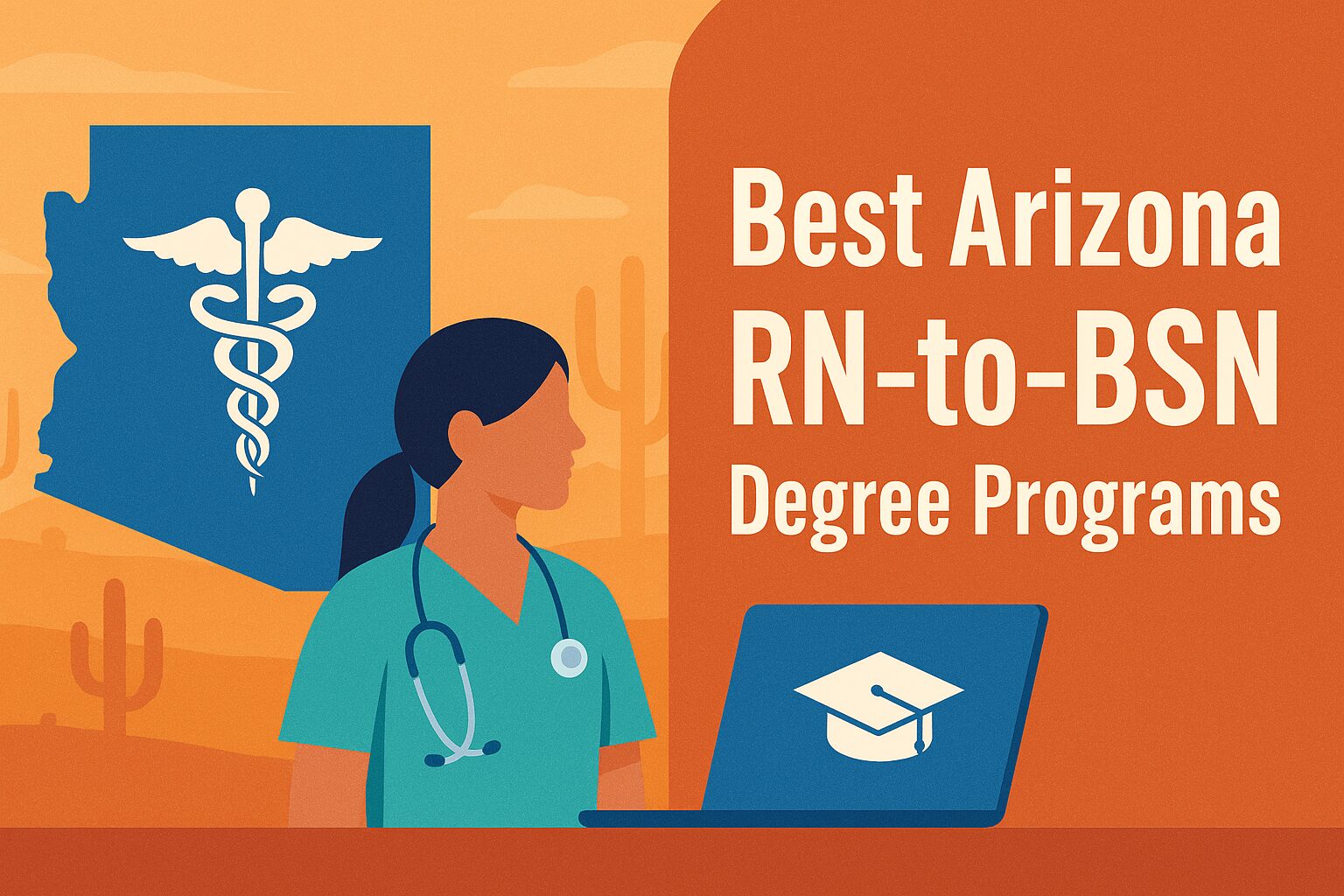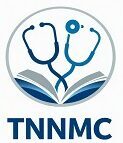Best Arizona RN-to-BSN Degree Programs
Arizona’s healthcare landscape is evolving rapidly, driven by significant population growth, particularly within the older demographic. This surge in demand for healthcare services, coupled with a projected nationwide nursing shortage that is expected to impact 42 out of 50 states by 2030 , places Registered Nurses (RNs) at a critical juncture. As of 2024, Arizona is home to 116,641 RNs. However, the state has historically faced challenges in maintaining an RN-to-population ratio comparable to the national average. Compounding this, employers across the nation, including major healthcare systems in Arizona like HonorHealth and Mayo Clinic Arizona, are increasingly prioritizing nurses with a Bachelor of Science in Nursing (BSN). National surveys indicate that nearly 28% of healthcare employers now require a BSN for new hires, with an overwhelming 72% stating a strong preference for baccalaureate-prepared nurses. In 2022, 71.7% of the RN workforce in the U.S. held a BSN or higher degree.
This convergence of factors—an aging population requiring more complex care, an impending nursing shortage, and a clear, data-supported employer preference for BSN-prepared nurses—signals an urgent need for ADN-prepared nurses in Arizona to advance their education. Pursuing a BSN is no longer just an option for career enhancement; it’s becoming essential for career stability and advancement in a healthcare system that increasingly links higher education with improved patient outcomes and the ability to manage multifaceted care needs. Earning your BSN through an Arizona-based RN-to-BSN program is a strategic investment that can significantly increase your salary, open doors to leadership roles, bolster job security, and provide the advantage of multistate practice mobility. This guide is designed to help working nurses in Arizona navigate the path to a BSN, outlining why it matters, how to choose the right program, highlighting top local options for 2025, and offering practical advice for success.
Why Earn a BSN in Arizona?
The decision to return to school is significant, but for RNs in Arizona, the reasons to pursue a BSN are compelling and deeply rooted in the state’s current and future healthcare needs. Advancing from an ADN to a BSN is not merely about adding credentials; it’s about positioning yourself for greater professional success and contributing to a higher standard of care in the Grand Canyon State.

Arizona’s Growing Demand for BSN-Prepared Nurses
Arizona’s healthcare sector is experiencing robust growth, with projections indicating a 22% increase in RN job openings between 2022 and 2032, translating to nearly 4,820 new positions annually. This growth rate significantly outpaces the national average of 6% for RNs. This high demand, coupled with a strong and growing employer preference for BSN-prepared nurses—with nearly 28% requiring it for new hires and 72% strongly preferring it nationally —creates a highly favorable job market for BSN graduates in Arizona. This preference is not arbitrary; it’s a direct response to the increasing complexity of patient care and the need for nurses equipped with advanced critical thinking, leadership, and evidence-based practice skills.
Enhanced Career Opportunities and Leadership Potential
A BSN curriculum typically offers more comprehensive training in areas like public health, nursing research, leadership, and health policy than an ADN program. This expanded knowledge base prepares BSN graduates for a wider array of roles and responsibilities. Many specialized nursing positions and virtually all leadership and management roles within healthcare organizations now prefer or mandate a BSN. The Bureau of Labor Statistics also identifies a bachelor’s degree as the typical entry-level education for registered nurses, reflecting the evolving standards of the profession. This shift underscores that a BSN is becoming a foundational requirement for a dynamic and advancing nursing career.
Increased Salary Potential
The financial benefits of earning a BSN are well-documented. Nationally, BSN-prepared nurses typically earn more than their ADN-prepared counterparts. Payscale data from mid-2023 suggests an average annual salary difference of about $17,000 , while NursingProcess.org reported a national average of $80,320 for BSNs versus $74,120 for ADNs. In Arizona, the median annual salary for all RNs in 2023 was $88,310. While recent Arizona-specific data directly comparing ADN and BSN salaries is evolving, older state-specific analyses showed a significant hourly wage advantage for BSN-prepared nurses ($44.56 vs. $34.34 for ADN in 2013). This trend of higher earning potential for BSN graduates consistently holds, making the degree a sound financial investment over the course of a nursing career.
Meeting Magnet Hospital Standards
Arizona is home to several hospitals recognized by the ANCC Magnet Recognition Program®, including facilities within the Banner Health and HonorHealth systems, as well as Mayo Clinic Arizona. Magnet status is a coveted credential signifying nursing excellence and high-quality patient care. A key component of achieving and maintaining Magnet status is the educational level of the nursing staff. Specifically, 100% of nurse managers and nurse leaders in Magnet facilities must hold a BSN or higher. While not always a rigid requirement for all staff RN positions, Magnet hospitals overwhelmingly prefer BSN-prepared nurses, aligning with the Institute of Medicine’s (now National Academy of Medicine) long-standing recommendation for an 80% BSN-prepared nursing workforce by 2020. This emphasis is due to research linking higher percentages of BSN nurses to improved patient outcomes, such as lower mortality rates and fewer medical errors. Consequently, aspiring to work or advance in Arizona’s leading hospitals often necessitates a BSN. This Magnet-driven standard tends to elevate hiring preferences across the broader healthcare landscape, as other institutions strive to remain competitive in attracting top nursing talent and improving their own quality metrics.
Leveraging Nurse Licensure Compact (NLC) Benefits
Arizona’s participation in the Nurse Licensure Compact (NLC) provides a significant advantage to its licensed nurses. Holding an Arizona RN license with multistate privileges allows nurses to practice in over 40 other NLC member states without the need to obtain additional, separate licenses. This compact offers numerous benefits, including enhanced access to patient care across state lines, robust support for telehealth nursing practices, smoother and more cost-effective relocation for military spouses and other nurses, and overall increased career flexibility. For BSN-prepared nurses in Arizona, the NLC amplifies their career mobility, opening doors to travel nursing assignments, remote telehealth opportunities, and easier transitions if they choose to relocate. This flexibility not only benefits individual nurses by broadening their job market and experience potential but also strengthens Arizona’s healthcare system by making the state a more attractive and accessible practice location for nurses from other NLC states.
Contributing to Rural and Tribal Health Priorities
A substantial portion of Arizona, particularly in its northern regions, is designated as medically underserved, with nearly 65% of primary care service areas facing shortages. Addressing the unique health needs of Arizona’s rural and tribal communities is a critical state priority. BSN programs, with their often-expanded curriculum in community health, public health, cultural competency, and health equity, prepare nurses to effectively serve these diverse populations. Initiatives such as Northern Arizona University’s Global BSN program, which aims to increase nursing education access in rural towns , and the University of Arizona’s Indians In Nursing: Career Advancement & Transitions Scholars (INCATS) Program , are actively working to build a culturally sensitive and skilled workforce for these areas. Furthermore, scholarships are often available for nursing students who commit to working in these communities post-graduation. BSN-prepared nurses are therefore indispensable in the effort to reduce health disparities and improve healthcare access and quality for all Arizonans, particularly those in remote or historically underserved regions.
Key Factors When Choosing an AZ RN-to-BSN Program
Selecting the right RN-to-BSN program is a critical decision that can significantly impact your career trajectory, educational experience, and financial investment. As a working nurse in Arizona, consider these key factors to find a program that aligns with your professional goals and personal circumstances.
Accreditation & AZ State Board of Nursing (AZBN) Approval
The most fundamental factor is ensuring the program holds appropriate accreditation and state approval.
- Programmatic Accreditation: Look for programs accredited by either the Commission on Collegiate Nursing Education (CCNE) (https://www.aacnnursing.org/CCNE) or the Accreditation Commission for Education in Nursing (ACEN) (https://www.acenursing.org). CCNE is an autonomous agency focused on baccalaureate, graduate, and residency/fellowship programs in nursing. ACEN accredits all levels of nursing education, from practical nursing to doctoral programs. Accreditation from one of these bodies signifies that the program meets rigorous national standards for quality and integrity in nursing education. This is essential for eligibility for federal financial aid, admission to graduate nursing programs, employment in many healthcare settings (especially federal positions like the VA or military), and often for state licensure endorsement.
- Arizona State Board of Nursing (AZBN) Approval: All nursing education programs operating in Arizona, including RN-to-BSN programs, must be approved by the Arizona State Board of Nursing (https://www.azbn.gov). AZBN approval ensures the program curriculum and outcomes align with state requirements for preparing safe, competent registered nurses. Choosing a program that lacks proper accreditation or AZBN approval can severely limit your career options and render your educational investment far less valuable.
Transfer-Credit Policies & Prerequisite Gaps
Since RN-to-BSN programs are designed for already licensed RNs, how a program handles your prior education is crucial.
- Maximizing Transfer Credits: Seek programs with generous and clear transfer credit policies. Many institutions offer “block transfer” for graduates of accredited ADN or diploma programs, granting a set number of credits for your existing nursing knowledge and license. This student-centric approach respects your prior learning and experience, preventing unnecessary repetition of coursework and focusing the BSN curriculum on advanced concepts in leadership, research, community health, and policy. Programs in Arizona vary in the number of credits they accept, with some accepting up to 90 credits from community colleges or through pathway agreements.
- Prerequisite Gaps: Carefully examine the prerequisite courses required before starting the core BSN nursing courses. Common prerequisites include statistics, anatomy and physiology, microbiology, chemistry, and English composition. Some programs allow you to complete these concurrently with your BSN coursework, while others require them to be finished beforehand. Identifying and addressing any prerequisite gaps early can prevent delays. Efficient credit transfer and minimal prerequisite hurdles are key to saving you time and money on your BSN journey.
Delivery Format: Online, Hybrid, Concurrent Enrollment (CEP)
Arizona offers RN-to-BSN programs in various formats to accommodate the diverse needs of working nurses:
- 100% Online Programs: These offer the greatest flexibility, allowing you to complete coursework from anywhere with an internet connection, typically on your own schedule (asynchronously). This format is ideal for highly self-disciplined individuals managing demanding work and family lives. Many Arizona universities, including ASU Online, NAU Online, University of Arizona Global Campus (UAGC), University of Phoenix, Aspen University, Chamberlain University, and Yavapai College, offer fully online RN-to-BSN options.
- Hybrid Programs: These blend online learning with some required on-campus activities, such as labs, simulation experiences, or occasional in-person class sessions. This format can provide a good balance for those who want flexibility but also value face-to-face interaction. The University of Arizona’s BSN-IH pathway in Gilbert and Rio Salado College’s RN-to-BSN are examples.
- Concurrent Enrollment Programs (CEP) / Associate to BSN: This innovative model allows students to enroll in BSN coursework at a university while simultaneously completing their Associate Degree in Nursing (ADN) at a partner community college. This significantly streamlines the educational path, saving both time and money. ASU, NAU, and Ottawa University (in partnership with Maricopa Community Colleges) offer CEP options. This pathway accelerates the production of BSN-prepared nurses, benefiting both the student and the healthcare system.
Program Length & Pacing
The time it takes to complete an RN-to-BSN program varies. Core nursing coursework typically involves around 10-11 classes (approximately 30-39 credits) beyond what is transferred from an ADN/diploma.
- Completion Times: Many programs can be completed in 12 to 24 months, with some accelerated options allowing completion in as little as 9-12 months, particularly for students who can dedicate significant time or choose competency-based formats.
- Pacing Options: Many programs offer full-time and part-time study options. Some, like NAU’s Personalized Learning and University of Phoenix’s competency-based track, allow students to progress at their own pace, potentially finishing faster if they can master material quickly. Choosing a program length and pacing that aligns with your work schedule, family responsibilities, and learning style is paramount for success.
Tuition, Scholarships, and Employer Reimbursement
The cost of an RN-to-BSN program can vary significantly.
- Tuition Rates: In-state tuition per credit hour in Arizona can range from approximately $193-$290 at community college-based BSN programs like Yavapai College to $300-$650+ at universities. NAU’s Personalized Learning for nursing is a flat $3,950 per six-month term. Total costs for the core nursing coursework can range from under $9,000 to over $20,000, depending on the institution and transfer credits.
- Scholarships: A wealth of scholarships is available from universities (ASU , NAU , UArizona ), the Arizona Foundation for the Future of Nursing (AzFFN) , and national sources like the Nurse Corps Scholarship Program. Specific scholarships often exist for veterans and those committed to serving tribal or rural communities.
- Employer Tuition Reimbursement: Major Arizona healthcare employers, including Banner Health and Dignity Health (now part of CommonSpirit Health) , offer tuition assistance or reimbursement programs. Some universities have established direct partnerships with these employers to facilitate this benefit.
- Discounts for Arizona Community College Graduates: Several universities offer preferential tuition rates or dedicated scholarships for students transferring from Arizona community colleges. Examples include NAU’s 2NAU Scholarship and various CEP partnerships , University of Phoenix’s 3+1 Transfer Pathway and CEP benefits , and ASU’s Transfer Achievement Award and CEP options. A comprehensive exploration of all financial aid avenues can make pursuing a BSN significantly more manageable.
Student Support Services
The demands of balancing work, life, and an RN-to-BSN program require strong institutional support.
-
- Key Services: Look for programs offering dedicated academic advisors, clinical placement assistance (especially crucial for online programs), writing and subject-specific tutoring, career counseling, and mental health services.
- Veteran Support: For veteran and active-duty military nurses, programs with dedicated veteran support centers or liaisons are invaluable. These services can assist with GI Bill® benefits, military tuition assistance, and transitioning to academic life. Many Arizona universities, including ASU, NAU, UAGC, GCU, University of Phoenix, Aspen University, Chamberlain University, Yavapai College, and Ottawa University, provide resources for military-affiliated students. Robust support systems are essential for navigating the challenges of an RN-to-BSN program while managing a nursing career.
Best Arizona RN-to-BSN Programs (for 2025)
Choosing the right RN-to-BSN program is a pivotal step in advancing your nursing career. Arizona offers a variety of excellent options tailored to the needs of working RNs. The following list highlights some of the top programs available for 2025, considering factors such as accreditation, flexibility, curriculum strength, student support, and available data on tuition and start dates. Each program is approved by the Arizona State Board of Nursing.


